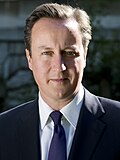The 2011 United Kingdom local elections were held on Thursday, 5 May. In England, direct elections were held in all 36 metropolitan boroughs, 194 second-tier district authorities, 49 unitary authorities and various mayoral posts, meaning local elections took place within all parts of England with the exceptions of seven unitary authorities (Cornwall, Durham, Northumberland, Isles of Scilly, Shropshire, the Isle of Wight and Wiltshire), and seven districts and boroughs (Adur, Cheltenham, Fareham, Gosport, Hastings, Nuneaton and Bedworth and Oxford). For the majority of English districts and the 25 unitary authorities who were "all-up" for election at the end of their four-year terms, these were the first elections since 2007. In Northern Ireland, there were elections to all 26 local councils. Elections also took place to elect members of most English parish councils.
| |||||||||||||||||||||||||||||||||||||||||||||
All 36 metropolitan boroughs, 49 out of 55 unitary authorities, 194 out of 201 district councils, all 26 Northern Irish councils, and 5 directly elected mayors | |||||||||||||||||||||||||||||||||||||||||||||
|---|---|---|---|---|---|---|---|---|---|---|---|---|---|---|---|---|---|---|---|---|---|---|---|---|---|---|---|---|---|---|---|---|---|---|---|---|---|---|---|---|---|---|---|---|---|
| |||||||||||||||||||||||||||||||||||||||||||||
 The results in England. Northern Ireland results are not shown. White areas indicate elections were not held here in 2011. | |||||||||||||||||||||||||||||||||||||||||||||
On the same day, elections to the Scottish Parliament, National Assembly of Wales and Northern Ireland Assembly were held. A UK-wide referendum[4] on whether to adopt the Alternative Vote electoral system for elections to the House of Commons and the Leicester South by-election was also held.
Labour, contesting its first elections under the leadership of Ed Miliband, finished narrowly ahead of the Conservatives. The BBC's projected national vote share put Labour on 37%, the Conservatives on 35% and the Liberal Democrats on 15%.[5] Rallings and Thrasher of Plymouth University put Labour narrowly behind on 37% of the national vote, compared to 38% for the Conservatives and 16% for the Liberal Democrats.[6]
Background
editElections were due to be held to Scottish councils, but these had been postponed until 2012 to avoid clashing with the elections to the Scottish Parliament, which in 2007 had caused confusion among voters.[7]
British, Irish, Commonwealth and European Union citizens living in the UK who were 18 or over on election day were entitled to vote in the local council and devolved legislatures elections. The deadline for voters in England, Wales and Northern Ireland to register to vote in the 5 May elections was midnight on Thursday 14 April 2011, whilst voters in Scotland had until midnight on Friday 15 April 2011 to register. Anyone in the United Kingdom who qualified as an anonymous elector had until midnight on Tuesday 26 April 2011 to register.[8]
Results
editThe Labour Party was described as obtaining "mixed results".[9] Their support recovered following a string of poor local election results during Gordon Brown's tenure and they gained over 800 council seats, mostly off the Liberal Democrats. Labour's gains were overshadowed by the coinciding Scottish Parliament election where they were routed by the Scottish National Party. The Conservatives narrowly obtained more votes than Labour and gained a small number of seats. They were helped by the gaining additional seats from the Liberal Democrats in the south west, south, south east and East Anglia.
The election was a disaster for the Liberal Democrats, who lost 40% of the council seats they were defending (mostly to Labour) and lost majorities in 9 of the 19 councils they controlled, including strongholds in Sheffield and Hull. There were some surprising gains for the Conservatives against the Liberal Democrats, with councils previously considered strongholds for the latter, like North Norfolk, Vale of White Horse and Lewes changing hands. This led to some calls for Nick Clegg to resign.[10] The losses coincided with the landslide rejection of the Alternative Vote referendum which had been supported by the Liberal Democrats and some members of the Labour Party.
UK-wide results
edit| Party | Councillors | Councils | |||
|---|---|---|---|---|---|
| Number | Change | Number | Change | ||
| Conservative | 5,109 | 86 | 157 | 4 | |
| Labour | 2,459 | 857 | 57 | 26 | |
| Liberal Democrats | 1,098 | 748 | 10 | 9 | |
| DUP | 175 | 3 | 0 | 2 | |
| Sinn Féin | 138 | 9 | 1 | 1 | |
| UUP | 99 | 16 | 0 | ||
| SDLP | 87 | 14 | 0 | ||
| Green | 79 | 14 | 0 | ||
| Neighborhood association | 48 | 3 | 1 | ||
| Alliance | 44 | 14 | 0 | ||
| UKIP | 8 | 1 | 0 | ||
| Liberal | 8 | 2 | 0 | ||
| TUV | 6 | 6 | 0 | ||
| Green (NI) | 3 | 0 | |||
| BNP | 2 | 11 | 0 | ||
| PUP | 2 | 0 | |||
| Others | 667 | 201 | 0 | ||
| No overall control | n/a | n/a | 79 | 17 | |
Source:[11] and Vote 2011: Northern Ireland Council Elections
Summary of English result
edit| Party | Councillors | Councils | |||
|---|---|---|---|---|---|
| Number | Change | Number | Change | ||
| Conservative | 5,109 | 86 | 157 | 4 | |
| Labour | 2,459 | 857 | 57 | 26 | |
| Liberal Democrats | 1,098 | 748 | 10 | 9 | |
| Green | 79 | 14 | 0 | ||
| Neighborhood association | 48 | 3 | 1 | ||
| Liberal | 8 | 2 | 0 | ||
| UKIP | 7 | 0 | 0 | ||
| BNP | 2 | 11 | 0 | ||
| Others | 640 | 207 | 0 | ||
| No overall control | n/a | n/a | 54 | 19 | |
Source:[11]
England
editMetropolitan boroughs
editAll 36 English Metropolitan borough councils one third of their seats were up for election.
Unitary authorities
editWhole council
editIn 30 English Unitary authorities the whole council were up for election.
Third of council
editIn 19 English Unitary authorities one third of the council were up for election.
Non-metropolitan districts
editWhole council
editIn 127 English district authorities the whole council were up for election.
Third of council
editIn 67 English district authorities one third of the council were up for election.
Mayoral elections
editFive direct mayoral elections were held.
| Local Authority | Previous Mayor | Mayor-elect | Details | ||
|---|---|---|---|---|---|
| Bedford | Dave Hodgson (Liberal Democrats) | Dave Hodgson (Liberal Democrats) | Details | ||
| Leicester | None (New post) | Sir Peter Soulsby (Labour) | Details | ||
| Mansfield | Tony Egginton (Mansfield Independent Forum) | Tony Egginton (Mansfield Independent Forum) | Details | ||
| Middlesbrough | Ray Mallon (Independent) | Ray Mallon (Independent) | Details | ||
| Torbay | Nicholas Bye (Conservative) | Gordon Oliver (Conservative) | Details | ||
Northern Ireland
editElections were held on the same day to local government in Northern Ireland.[12]
References
edit- ^ Sparrow, Andrew (5 May 2011). "Election results 2011 - Thursday 5 May". The Guardian. London.
- ^ Compared to the 2010 local elections
- ^ "Clegg announces date for AV referendum". BBC Democracy Live. 5 July 2010. Retrieved 7 July 2010.
- ^ Hawkins, Ross (6 May 2011). "Polls' impact on party leaders". BBC News.
- ^ "Data" (PDF). researchbriefings.files.parliament.uk. Retrieved 27 May 2019.
- ^ "Election separation plan passed". BBC News. 17 June 2009. Retrieved 7 July 2010.
- ^ The deadline for the receipt and determination of anonymous electoral registration applications is the same as the publication date of the notice of alteration to the Electoral Register (i.e. the fifth working day before election day).
- ^ Watt, Nicholas (6 May 2011). "Elections 2011: Ed Miliband puts a brave face on mixed results for Labour". The Guardian. London.
- ^ "Vote 2011: Nick Clegg quit calls after council losses". BBC News. 7 May 2011.
- ^ a b "BBC News - Election 2011 - England council elections". BBC. 11 June 2011. Retrieved 26 May 2019.
- ^ "Plan to cut Northern Ireland councils may be delayed until 2015". Belfast Telegraph. 7 May 2010. Retrieved 7 July 2010.


